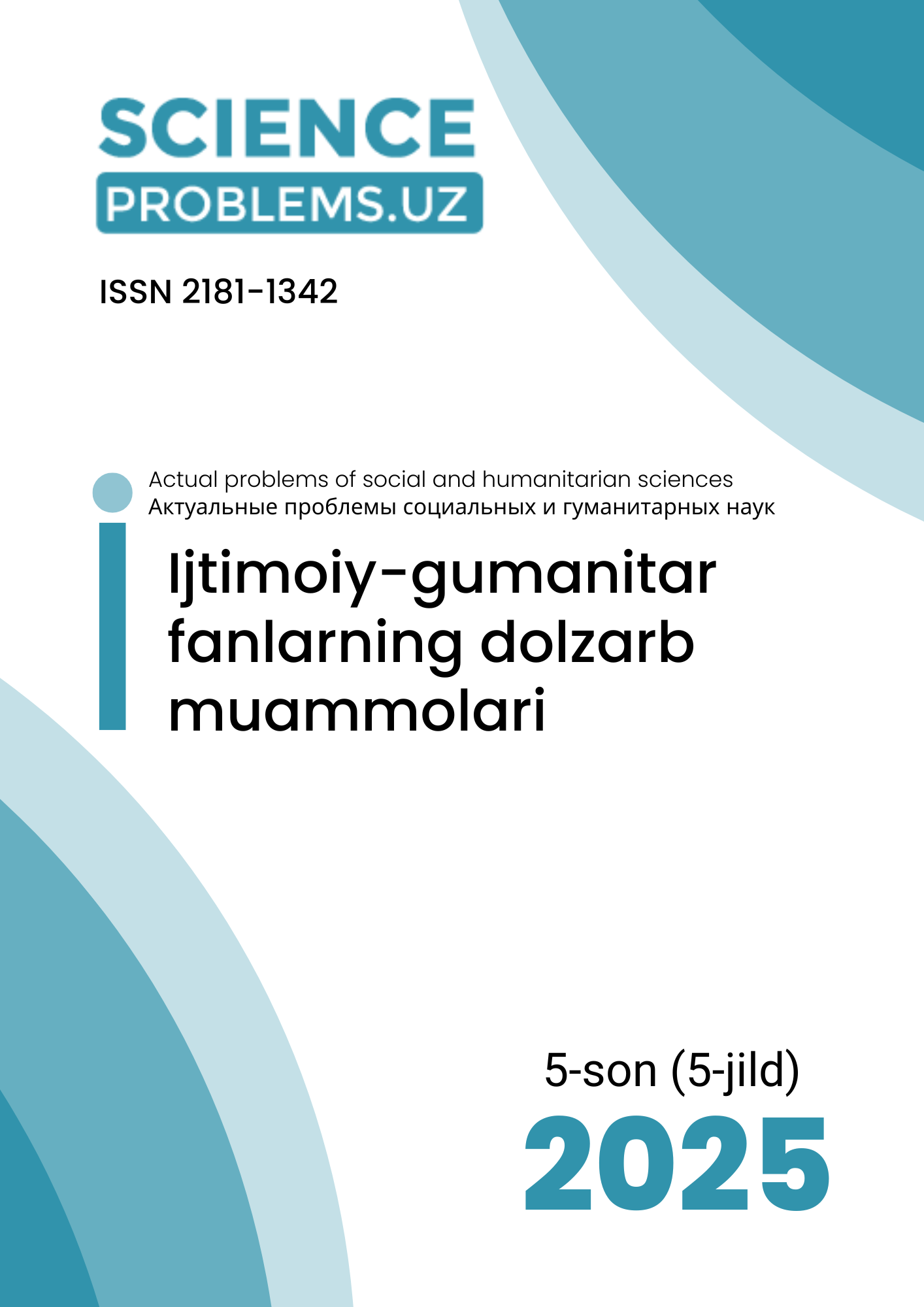ИСПОЛЬЗОВАНИЕ ПОДХОДОВ ИНФОРМАЛЬНОГО ОБРАЗОВАНИЯ В ОБРАЗОВАТЕЛЬНОМ ПРОЦЕССЕ В УСЛОВИЯХ ГЛОБАЛИЗАЦИИ КАК СОВРЕМЕННАЯ ПЕДАГОГИЧЕСКАЯ ПРОБЛЕМА
DOI:
https://doi.org/10.47390/SPR1342V5I5Y2025N77Ключевые слова:
Глобализация, информальное образование, неформальное образование, формальное образование, обучение в течение всей жизни, педагогический подход, образовательный процесс, система образования Узбекистана, информационное общество, опытное обучение.Аннотация
В условиях глобализации возрастают требования к системе образования по реализации принципов непрерывного обучения и профессионального развития. В данной статье анализируется значение подхода информального образования в системе образования Узбекистана и вопросы его интеграции в образовательный процесс. На основе анализа существующих научных источников раскрывается взаимосвязь формального и информального образования, а также роль и возможности информального обучения в современном информационном обществе. Результаты исследования показывают, что использование информального подхода способствует повышению интереса студентов к обучению, развитию навыков самостоятельного обучения и подготовке конкурентоспособных кадров в условиях глобализации. Кроме того, в статье разработаны конкретные рекомендации для системы образования Узбекистана, обеспечивающие взаимосвязь теоретических и практических аспектов.
Библиографические ссылки
1. Furdyk, M. (2012, June 26). Informal Learning for a Better World. Getting Smart. https://www.gettingsmart.com/2012/06/26/informal-learning-better-world/
2. Rogers, A. (2014). The Classroom and the Everyday: The Importance of Informal Learning for Formal Learning. Investigar em Educação, II(1), 7-26. https://www.researchgate.net/publication/311419581_The_Classroom_and_the_Everyday_The_Importance_of_Informal_Learning_for_Formal_Learning_1
3. Johnson, M., & Majewska, D. (2022). Formal, non-formal, and informal learning: What are they, and how can we research them? Cambridge University Press & Assessment – Research Report. https://www.cambridgeassessment.org.uk/Images/665425-formal-non-formal-and-informal-learning-what-are-they-and-how-can-we-research-them-.pdf
4. DVV International. (2020, oktabr). Катта ёшдагиларни ўқитиш ва таълим бериш биринчи бор “Таълим тўғрисида”ги янги қонунга киритилди. https://www.dvv-international-central-asia.org/uz/uzbekiston/jangiliklar/detail/adult-learning-and-education-included-into-a-new-law-on-education-in-uzbekistan
5. Oʻzbekiston Respublikasining 2020-yil 23-sentabrdagi “Taʼlim toʻgʻrisida”gi Qonun. OʻRQ–637-son. https://lex.uz/docs/-5013007
6. UNESCO Institute for Lifelong Learning (UIL). (2015). Community Learning Centres, Uzbekistan – LitBase (Effective Literacy and Numeracy Practices Database). Hamburg: UIL. https://www.uil.unesco.org/en/litbase/community-learning-centres-uzbekistan








